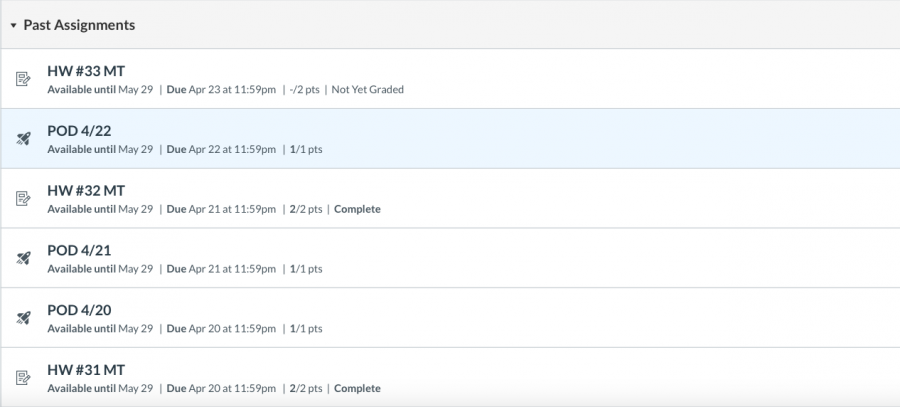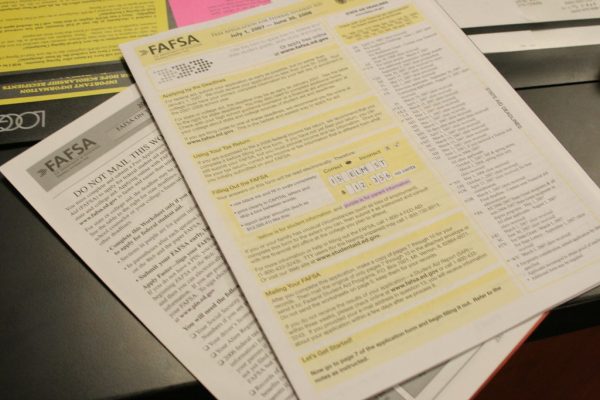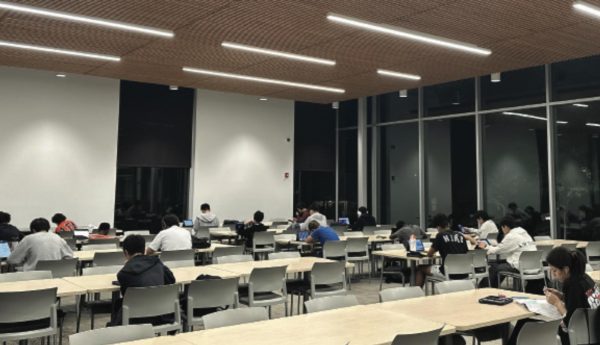Things can only go up! LFA’s new grading policy puts more emphasis on learning and less on grading
Photo by Nick Alutto
With more assignments being online, students are receiving more grades through Canvas.
May 4, 2020
Anxiety seems to be an unwelcome new normal for many people during the age of COVID-19. No matter what people are doing, it can seem inescapable through the news, alerts on phones, and everyday conversations. With so many things to worry about, along with a huge shift in how students at LFA go to school and receive their education, many people have felt that grades should play a smaller role in students’ thoughts in this new normal.
Lots of students were worried that these drastic changes could negatively impact the grades they had been working on all year. Even with some teachers’ decisions to implement Zoom as a way to hold live classes virtually, LFA is a school with students in different time zones across the globe. Many students can’t attend these live classes while they are happening. This puts students on a different playing field that would make a normal grading system unfair. In an expression of these concerns, Natalie Putzel ‘22 made an online petition calling for LFA classes to be pass/fail, which has over 200 signatures.
“I felt very worried that being in an environment away from school would not be very motivating. I’m usually a person who is pretty eager to learn new things, but I didn’t think I would be at home. I thought some of my fellow classmates felt that way too. I also thought about students that would not be able to attend live classes and how this would impact them as well,” said Putzel.
With vocal support from students, a recommendation from the Illinois Board of Education recommendation to not allow grades to drop, and internal conversations within the school, LFA decided to implement a policy that student grades could not get worse, but only improve- provided that students continued to turn in work sufficient enough to earn credit.
“Much of the research was indicating that in order to remove anxiety, schools should change their grading policy. The State of Illinois advocated for a pass/incomplete system,” said Chris Tennyson, the Dean of Students, when asked how the school came to this decision. “Lots of students had worked really hard for the first half of the term. We wanted that to be reflected; however, we wanted to remove some of the stress and anxiety of going to a distance learning model. Additionally, we have students that live in different time zones and also have different levels of access and connectivity, and so we felt that placing a floor on the students’ grades was the most inclusive, stress-reducing thing we could do.”
“We needed to take into consideration the more challenging learning and studying scenarios our students are facing here in Illinois and all over the world. We certainly didn’t want anyone to feel punished by situations completely beyond their control. We want to help our students continue to learn and improve their skills across disciplines. I really hope our students see the value in that and do their best,” said Dean of Curriculum & Innovation, Kristine Von Ogden.
Some students are also worried now that, with less emphasis on graded assignments (including finals), it will be difficult for students to move their grades up, an issue especially important for students on Academic Watch.
“Students’ grades can still go up and so that is a positive thing. The support system that we built is quite robust, and Mrs. Gilbertson, Mrs. Norman, Mrs. Madeley, Mrs. Collins, and the advisors have all really stepped up to make sure that students don’t fall through the cracks in our virtual world,” said Tennyson.
With a new set of unprecedented issues and school guidelines, it seems that the school will be taking a very collaborative approach with students, fixing any issues that may arise from this new policy and working towards solutions as problems arise.
Overwhelmingly, students have been supportive of this decision. “By not allowing grades to drop, they accounted for the struggles of e-learning and reduced stress about e-learning negatively impacting grades. It also allows for grades to be raised, which keeps people motivated to do well,” said Noah Sebolt ‘21.
As for Putzel, who was one of the most vocal supporters of implementing a new grading system, she said, “I am satisfied with the policy LFA chose because I think it allows students to learn without worrying about any consequences from doing poorly. I also like the fact that it does not just throw away the hard work students put in before break.”
With LFA’s new grading policy, students are being given a chance to pay less attention to grading and more attention to navigating our new reality during these troubling times.















